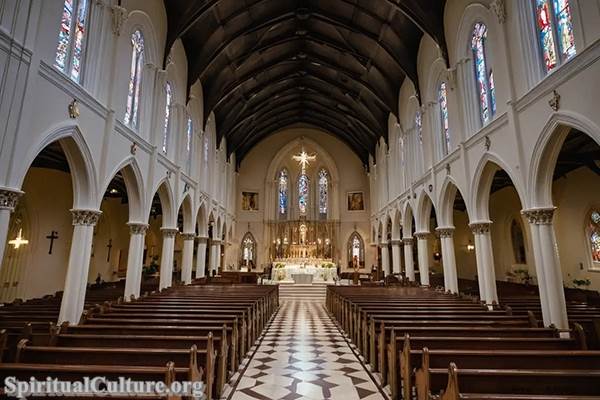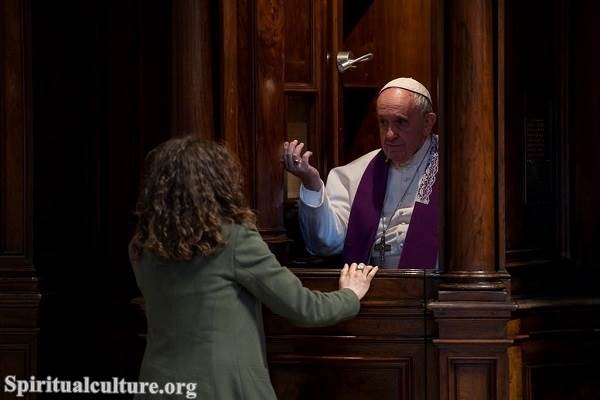Lent is a season that stirs something ancient and universal within us — a longing to return, to simplify, to remember what truly matters. As “Spiritual Culture,” we invite you to journey into the rich meaning behind Catholic fasting during Lent: a practice not merely of denial, but of profound spiritual awakening.
Each year, millions of Catholics worldwide enter this forty-day pilgrimage of the heart, echoing Jesus’ own forty days in the wilderness. But why fast? Why embrace this practice in a world obsessed with constant consumption and comfort? In this article, we will explore the deep roots of Lenten fasting, its spiritual and cultural significance, and how it remains profoundly relevant today.
The Historical and Biblical Roots of Lenten Fasting
A Tradition Traced to Jesus Himself
Fasting is not a modern invention; it is woven into the very fabric of sacred history. The Gospels tell us that Jesus “was led by the Spirit into the wilderness” where He fasted for forty days and forty nights (Matthew 4:1–2). This period of solitude and self-denial prepared Him for His public ministry, and it was a moment of intense spiritual testing and strengthening.
Early Christians saw this example as a call to imitate Christ. By the second and third centuries, a period of fasting before Easter began to develop in the Christian community. Over time, this evolved into the forty-day season we now call Lent — a symbolic journey mirroring Jesus’ time in the desert.
Echoes from the Old Testament
The Hebrew Scriptures also speak of fasting as a means of repentance and spiritual preparation. Moses fasted for forty days on Mount Sinai (Exodus 34:28), and Elijah journeyed for forty days to Mount Horeb after fasting (1 Kings 19:8). These stories reveal a consistent theme: fasting is a way to clear the inner noise, humble oneself before God, and prepare to receive divine revelation.
The Spiritual Purpose: Beyond Physical Hunger
Turning Away from the Superficial
In a culture dominated by endless consumption — of food, media, experiences — fasting offers a radical alternative: a return to simplicity. By intentionally setting aside physical indulgence, Catholics are invited to confront the deeper cravings of the soul.
Fasting reveals our attachments. It uncovers how much comfort and convenience dictate our daily lives. In this vulnerability, the soul finds space to reconnect with God.
Drawing Closer to Christ’s Suffering
Fasting is not merely about abstaining from certain foods. It is an act of solidarity with Christ’s passion and suffering. By feeling hunger or discomfort, believers unite their small sacrifices to the ultimate sacrifice of Jesus on the cross.
As St. Paul writes, “I want to know Christ — yes, to know the power of His resurrection and participation in His sufferings” (Philippians 3:10). Through fasting, Catholics embody this desire to share in Christ’s journey toward the cross and resurrection.
Cultural and Communal Dimensions
A Shared Journey
Lenten fasting is not just a personal discipline; it is a communal act. Around the world, parishes and families observe the same practices, creating a sense of solidarity. In this shared sacrifice, the Church becomes more deeply united.
Catholics abstain from meat on Fridays, choose simpler meals, or give up luxuries like sweets or social media. These practices remind believers that they are part of a larger spiritual family, journeying together toward Easter.
Reorienting Our Lives
In a way, Lent acts like a spiritual detox. It helps individuals step back from the busyness of daily life and remember what truly matters: love of God and neighbor. Many also use this time to engage more deeply in prayer, acts of charity, and confession — all practices that foster interior renewal.
Sacred Texts Illuminating the Practice
“Man Shall Not Live by Bread Alone”
When tempted in the wilderness, Jesus responds to Satan: “Man shall not live by bread alone, but by every word that comes from the mouth of God” (Matthew 4:4). This verse underlines the essence of fasting — a shift from material dependency to spiritual nourishment.
The Prophet Isaiah’s Call
Isaiah 58:6–7 challenges superficial fasting and emphasizes justice and compassion:
“Is not this the kind of fasting I have chosen: to loose the chains of injustice and untie the cords of the yoke, to set the oppressed free…? Is it not to share your food with the hungry and to provide the poor wanderer with shelter…?”
These words remind Catholics that fasting is never just about personal piety; it must overflow into loving action.
Personal Transformation Through Fasting
Embracing Inner Poverty
Fasting opens a sacred space within. As layers of comfort are stripped away, believers encounter their own poverty — the fears, desires, and wounds often masked by busyness and pleasure.
In this raw space, God’s grace can enter more fully. This is why many describe Lent as a season of profound healing.
Learning Gratitude and Dependence
When we voluntarily let go of food or habits, we rediscover gratitude for simple gifts. Every meal becomes a moment of thanksgiving; every small comfort, a reminder of God’s generosity.
This practice cultivates humility and a renewed sense of dependence on God — a central spiritual aim of the Christian journey.
How Fasting Connects to Modern Challenges
The Hunger for More
Modern life is filled with endless cravings — for recognition, success, stimulation. Yet many find these pursuits leave them emptier than before. Fasting addresses this by exposing the illusion that “more” will satisfy the soul.
Digital Overload and Distraction
In today’s hyperconnected world, many choose to fast not only from food but from social media, entertainment, or noise. This allows space for deeper silence, reflection, and authentic relationships.
Reclaiming Time and Attention
Through fasting, Catholics reclaim their time and attention from the tyranny of constant consumption. By redirecting focus toward prayer and acts of service, they discover a deeper rhythm of life — one anchored in divine love rather than worldly demands.
Stories and Reflections: Real-Life Encounters
Maria’s Lenten Awakening
Maria, a young professional, shared that her first true Lenten fast transformed her entire faith life. By giving up her daily coffee and social media scrolling, she realized how much these small comforts shaped her mood and focus. The discomfort led her into deeper prayer and a renewed sense of joy.
A Family’s Journey
One family decided to simplify their meals and dedicate savings to support a local food pantry. Their children learned the joy of generosity, and the family bonds grew stronger as they shared stories and prayers each evening. Lent became not just about individual sacrifice but a collective mission of love.
The Fruit of Fasting: Toward Easter Joy
Lenten fasting prepares Catholics for the ultimate joy of Easter. By walking through the desert of self-denial, they arrive at the garden of resurrection with hearts ready to receive the fullness of life.
The emptiness created by fasting is not meant to leave us void but to be filled with the presence of the Risen Christ. Just as Jesus emerged from the tomb transformed, so too believers emerge from Lent renewed in spirit.
Reflect and Reimagine
Fasting during Lent is far more than a ritual; it is a sacred invitation to rediscover the heart’s true hunger and to align one’s life more closely with Christ’s journey.
As you reflect on this practice, consider:
- What attachments or comforts might be standing between you and a deeper relationship with God?
- How might simplifying your life — even in small ways — open space for gratitude, compassion, and spiritual clarity?
Whether you are Catholic or simply seeking a deeper spiritual rhythm, the practice of fasting holds timeless wisdom. It whispers that less can indeed be more, that emptiness can be holy, and that through surrender, we find our true nourishment.
May this Lenten season be a journey into the wilderness of your soul — a place where you meet the God who satisfies every hunger and transforms every heart.


